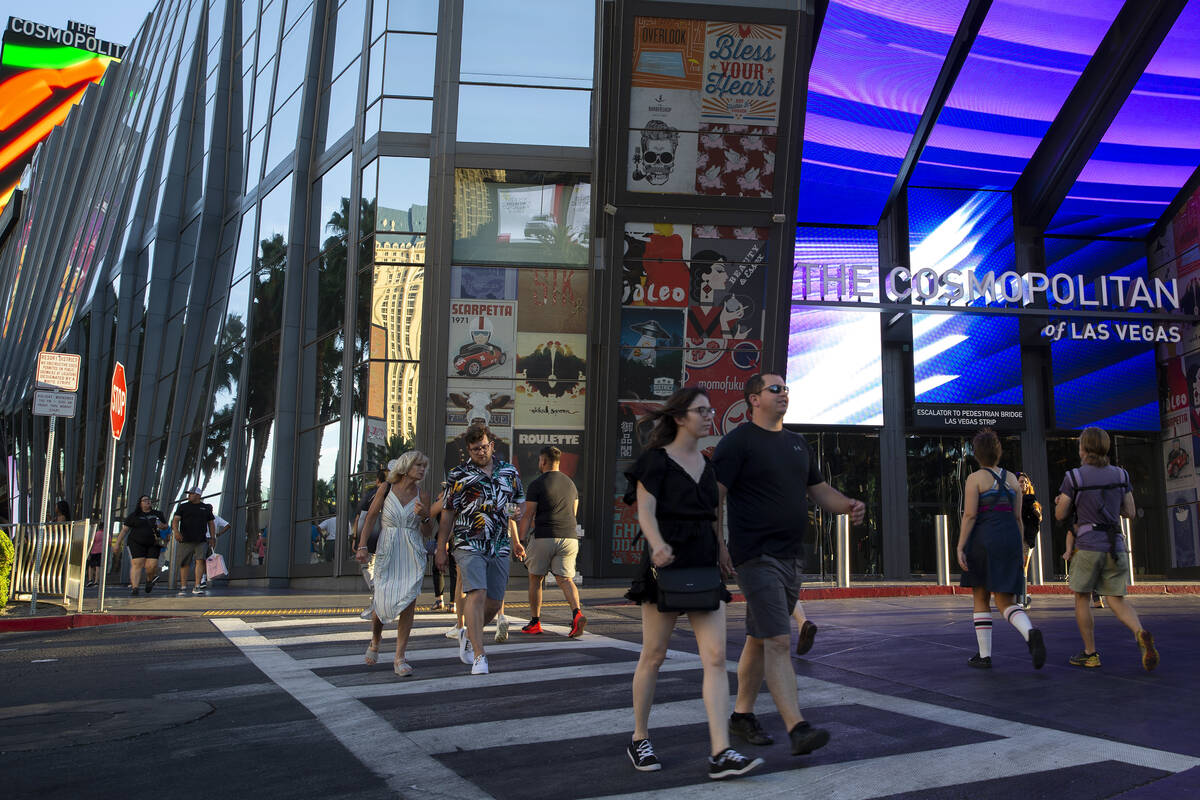The tentative agreements include “the largest wage increases ever negotiated in Culinary Union’s 90-year history,” according to dual news releases.

The largest casino workers union in Las Vegas announced new tentative contract agreements with two Strip operators.
Culinary Workers Union Local 226 and Bartenders Union Local 165 have reached three-year deals with Resorts World Las Vegas and The Cosmopolitan hotel-casinos, covering close to 4,500 employees across both properties. The tentative agreements include “the largest wage increases ever negotiated in Culinary Union’s 90-year history,” according to dual news releases.
“Nothing in our nine decades came easily. Victories are the result of militant worker organizing, sacrifice, and determination,” said Ted Pappageorge, secretary-treasurer for the Culinary Union. “We are proud to celebrate a 100 percent unionized Las Vegas Strip and Culinary Union’s legacy of making hospitality jobs in Las Vegas family-sustaining jobs. This victory is a win for workers, the company and the future of Las Vegas.”
The new three-year contracts expire Sept. 30, 2028, the same timeline as the other casino properties on the Strip. A ratification vote by the membership at both properties will be scheduled soon.
“I’m so happy because we won a new union contract that’s going to benefit us all with fair wage increases and more protections at work,” said Lucila Zamora, a guest room attendant at Resorts World and Local 226 member for 13 years.
The contract for The Cosmopolitan union workers is the first since the property was acquired by Las Vegas-based MGM Resorts International.
“The most important parts of the contract for me is winning more job protections, room credit reductions so that guest room attendants have a safer workload and working conditions, and strong economic package and wage increases that we won,” said Stella Kalaoram, a room stylist at The Cosmopolitan who was been a union member for 9 years.
Culinary Workers Union Local 226 and Bartenders Union Local 165 are Nevada affiliates of UNITE HERE. The labor organization represents nearly 60,000 workers in Las Vegas and Reno, including most of the casinos on the Las Vegas Strip and in downtown Las Vegas.
Operating profits down double digits in Atlantic City
Atlantic City casino operators reported a 15 year-over-year decline in quarterly profits during the first three months of 2025.
The nine Atlantic City casinos (seven operators since Caesars Entertainment oversees three properties at the Jersey Shore) posted gross operating profits of $131.97 million in the first quarter of this year, down from $155.42 million during the same period in 2024.
In addition to shrinking profits, casinos in Atlantic City also posted less net revenue in the first quarter than those reported in the first quarter of 2024 or 2023, according to data from the state Division of Gaming Enforcement.
“Atlantic City’s first quarter net revenue declined in comparison to the same periods of the past two years, reflecting economic pressure that affects regional gaming and leisure tourism,” said New Jersey Casino Control Commission Chairman James Plousis. “Lower gross operating profit due to the elevated cost of goods and services purchased by the operators continued to be seen in the first quarter.”
Of the seven operators in Atlantic City, five have a presence in Las Vegas. MGM Resorts International, Caesars and Golden Nugget each have active casinos in both jurisdictions. Bally’s Corp., and Hard Rock International operate casinos in Atlantic City, and both are licensed in Nevada. Bally’s controls the gaming license that used to belong to Tropicana Las Vegas. Hard Rock took over control of The Mirage in 2023 before shuttering the iconic Strip property to make way for a new casino resort and guitar-shaped hotel, both of which are scheduled to open in 2027.
Alaska sports betting
Bids to legalize sports wagering fell short in Hawaii and Oklahoma this year, but legislation to bring sports betting to Alaska is still alive.
Alaska’s House Labor and Commerce Committee conducted a hearing last week on a bill sponsored by Rep. David Nelson, R-Anchorage.
Legislation would legalize up to 10 online sportsbook operators in the state. If more than 10 applicants apply, licenses would be awarded on projected revenue based on other states.
Nelson’s proposal sets the license fee at $100,000, with a 20 percent tax on sports betting revenue.
Alaska’s legislative session is expected to end Wednesday, but bills introduced in the current session automatically carry over to next year.
Sports wagering is legal in 39 states and Washington D.C. Sports betting in 2024 generated $115 billion in gross gaming revenue.

